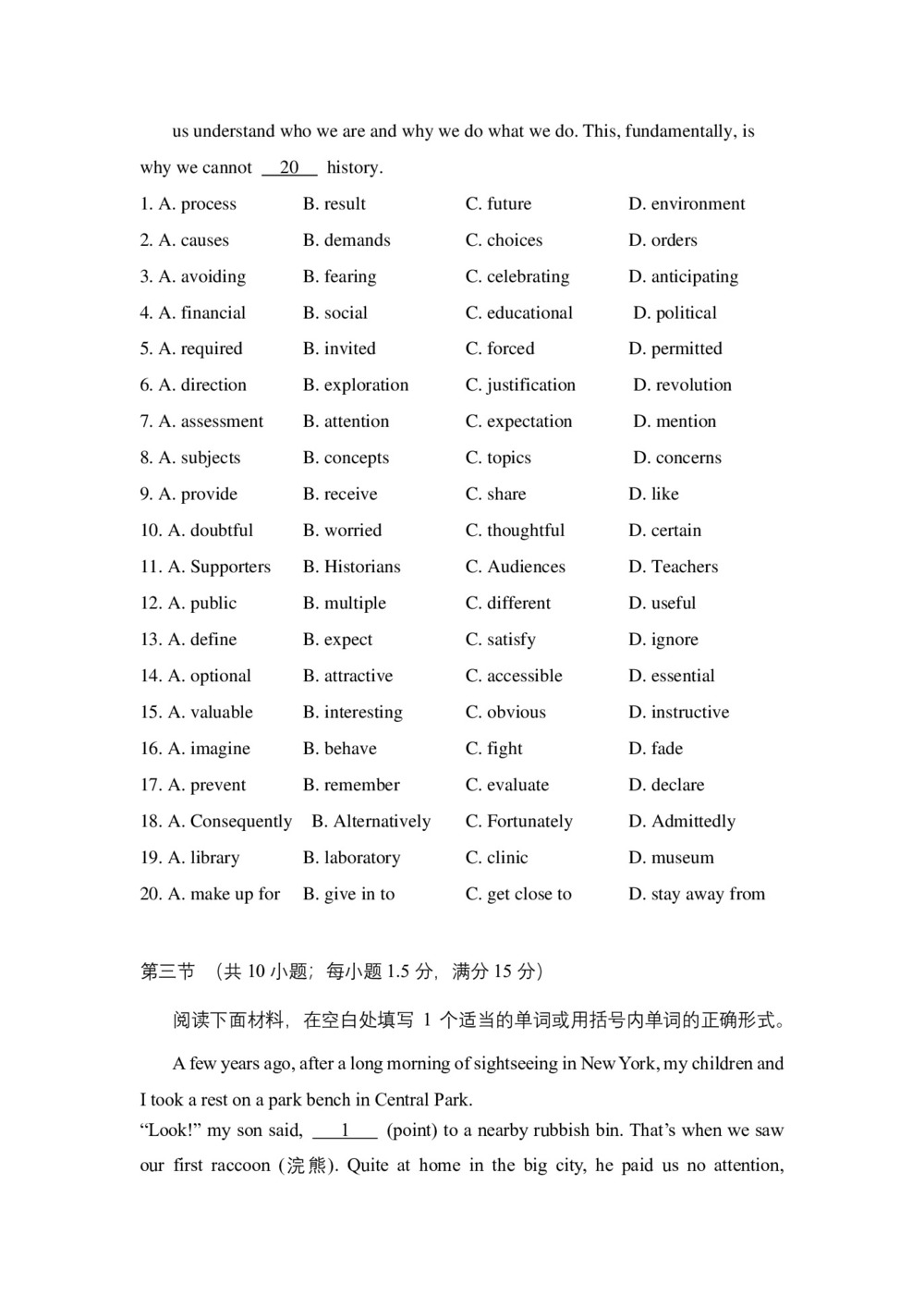
us understand who we are and why we do what we do. This, fundamentally, is why we cannot 20 history.
1. A. process B. result C. future D. environment
2. A. causes B. demands C. choices D. orders
3. A. avoiding B. fearing C. celebrating D. anticipating
4. A. financial B. social C. educational D. political
5. A. required B. invited C. forced D. permitted
6. A. direction B. exploration C. justification D. revolution
7. A. assessment B. attention C. expectation D. mention
8. A. subjects B. concepts C. topics D. concerns
9. A. provide B. receive C. share D. like
10. A. doubtful B. worried C. thoughtful D. certain
11. A. Supporters B. Historians C. Audiences D. Teachers
12. A. public B. multiple C. different D. useful
13. A. define B. expect C. satisfy D. ignore
14. A. optional B. attractive C. accessible D. essential
15. A. valuable B. interesting C. obvious D. instructive
16. A. imagine B. behave C. fight D. fade
17. A. prevent B. remember C. evaluate D. declare
18. A. Consequently B. Alternatively C. Fortunately D. Admittedly
19. A. library B. laboratory C. clinic D. museum
20. A. make up for B. give in to C. get close to D. stay away from
第三节 (共10小题;每小题1.5分,满分15分)
阅读下面材料,在空白处填写1个适当的单词或用括号内单词的正确形式。
A few years ago, after a long morning of sightseeing in New York, my children and I took a rest on a park bench in Central Park.
"Look!" my son said, 1 (point) to a nearby rubbish bin. That's when we saw our first raccoon (浣熊). Quite at home in the big city, he paid us no attention, concentrating only on finding a 2 (taste) lunch. He sorted through a few options
-
相关试卷下载
- 12018--2019学年人教版必修三Unit 1 Festivals around the world learning about language课时作业(1)
- 22018--2019学年人教版必修三Unit 1 Festivals around the world learning about language课时作业(6)
- 32018--2019学年人教版必修三Unit 1 Festivals around the world learning about language课时作业(5)
- 42018--2019学年人教版必修三Unit 1 Festivals around the world learning about language课时作业(3)
- 52018--2019学年人教版必修三Unit 1 Festivals around the world learning about language课时作业(9)
- 62018--2019学年人教版必修三Unit 1 Festivals around the world learning about language课时作业(2)
- 72018--2019学年人教版必修三Unit 1 Festivals around the world learning about language课时作业(7)
- 82018--2019学年人教版必修三Unit 1 Festivals around the world learning about language课时作业(8)
- 92018--2019学年人教版必修三Unit 1 Festivals around the world learning about language课时作业(10)